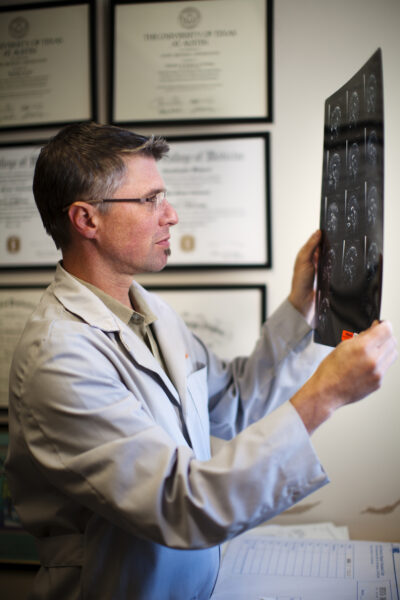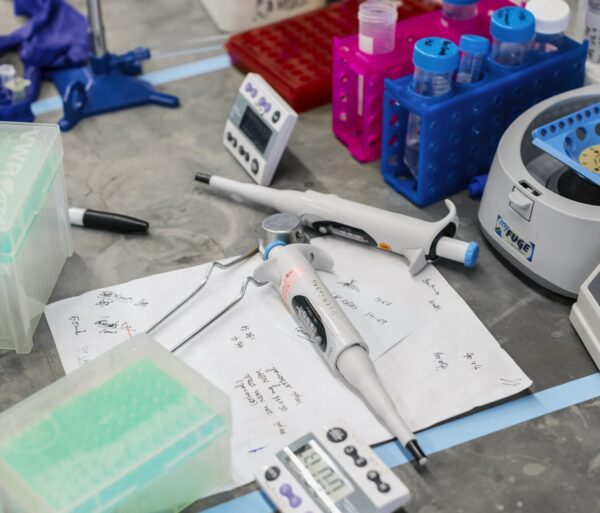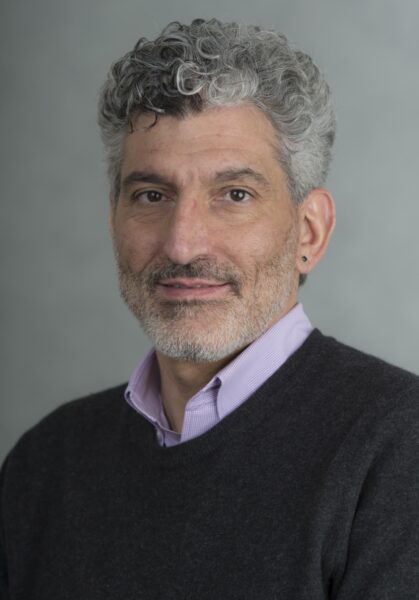
Dane Chetkovich, M.D., Ph.D.
Associate Professor of Neurology, Northwestern University 2009, 2010 Seed Grant Recipient
Details surrounding a pair of Brain Research Foundation grants awarded in 2009 and 2010 to Dr. Dane Chetkovich for his epilepsy studies tell a compelling story about how our seed grant money yields valuable and far-reaching results.
Dr. Chetkovich has parlayed both of his grant studies into substantial additional funding. And through collaboration and sharing of technology, his work has led to improved understanding of how abnormal brain function leads to epilepsy.
Epilepsy is characterized by recurrent seizures that occur spontaneously. At its worst, epilepsy leads to disability, reduced quality of life and increased risk of sudden death. While therapeutic drugs and even surgery have improved the lives of many patients with epilepsy, such treatments often come at a cost. There are others who are resistant to these therapies and are still searching for relief.
Dr. Chetkovich used his 2009 and 2010 BRF seed grant money to approach this disease from two different perspectives.
In his 2009 seed grant study, Dr. Chetkovich tested his hypothesis that the presence of a specific protein in the brain might stop epilepsy. His lab engineered a virus to deliver the gene of that protein into the brain cells of epileptic mice. The experiments progressed quickly and demonstrated that viral gene therapy was indeed a viable approach to stopping epilepsy in mice.

Dr. Chetkovich used the data he generated from this $40,000 BRF seed grant to obtain a National Institutes of Health (NIH) award in the amount of $450,000. He then took the next step in the funding process by applying for a second, larger NIH grant. If his proposal is successful, he could receive an additional $1.2 million for a project that BRF funded when it was just an innovative idea. The Foundation’s $40,000 investment has the potential to generate 40 times more in additional funding. This additional funding allows Dr. Chetkovich to continue to advance his study of epilepsy at an even more rapid pace.
Dr. Chetkovich’s 2010 seed grant project created a novel mouse model of epilepsy. Based on his previous results, Dr. Chetkovich hypothesized that if his lab disrupted a regulatory protein in the brain, it would cause seizures. Deleting that protein from a strain of mice proved his hypothesis correct—the genetically altered mice displayed seizures.
With this new data, he obtained another early-stage NIH grant for $420,000.
This novel mouse model has been an invaluable tool for researchers studying epilepsy. Dr. Chetkovich has shared his model with other scientists in Chicago, Texas, Germany, Switzerland and London. The BRF seed grant has not only advanced Dr. Chetkovich’s research in epilepsy but also the research of national and international neuroscientists.
In addition to generously giving his mouse model to others working in the field of epilepsy, Dr. Chetkovich is sharing it with scientists working on depression. It is now thought that the regulatory protein associated with epilepsy is also involved in mood regulation.
The innovative progress of Dr. Chetkovich’s work illustrates the key role the Brain Research Foundation plays in promoting better understanding of the brain through grants that help advance science exponentially—providing knowledge and discovery that impact a wide range of neuroscience research.



